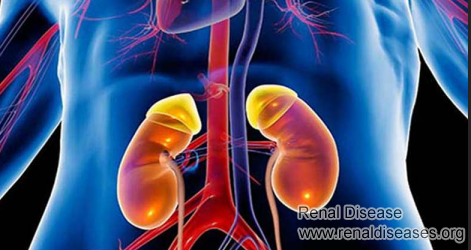“What preparation should I make If I decide to come to here for the treatment?”. Many foreign patients will ask the question. Now, everything is listed below. Any questions, please call me directly, (). I am glad to help you.
Read More >>
 Successful surgery is only the first step of kidney transplant. The more important thing is to improve the long-term survival rate of the transplanted kidney. In this article, we will discussion about this topic from five points.
Successful surgery is only the first step of kidney transplant. The more important thing is to improve the long-term survival rate of the transplanted kidney. In this article, we will discussion about this topic from five points.
After kidney transplantation, patients must return to the transplant doctor regularly. Rejection is a major obstacle to long-term renal transplant survival.
Therefore, renal transplant patients after discharge, must adhere to regular review, so that doctors can timely find problems. The time for reexamination is usually once a week in the first 3 months after surgery, once every two weeks in the last 3 months, once every month after half year of surgery, and once every 2-3 months after 1 year. The reexamination should include routine biochemical tests and blood drug concentration monitoring.
Currently, patients need to take five kinds of anti-rejection drugs for a long time after surgery: prednisone, miff, cellcept, cyclosporine and tacrolimus. As the blood concentration of cyclosporine and tacrolimus has different requirements at different transplantation stages, patients need to check the blood concentration of the drug regularly and increase or decrease the dose of the drug at any time.
Cardiovascular disease is the primary factor that endangers the life of renal transplant patients, and the key factors of cardiovascular disease are hypertension, diabetes and hypercholesterolemia after transplantation. Blood pressure should be controlled below 130/80mmhg, and the effect of blood pressure on the kidney is particularly obvious. For every 10mmHg increase in diastolic blood pressure, the risk of increased serum creatinine increases by 1.5-2.0 times. In addition, some patients will suffer from hyperglycemia and hyperlipidemia after kidney transplantation, and the reason is often related to the use of immunosuppressive agents. Long-term hyperglycemia and hyperlipidemia have a great impact on cardiovascular and cerebrovascular diseases. Therefore, patients should be guided by the doctor for blood pressure reduction and blood lipid control treatment.
Some infections are not serious at first, but when they develop, they can be fatal. Therefore, patients should try to regularly review the drug concentration; Avoid public places as much as possible, especially during infectious disease seasons; To prevent colds, keep in mind that colds may induce rejection. Once a cold has been identified, it should be treated by an experienced transplant doctor and drugs that damage the kidneys and interact with cyclosporine should be avoided.
Some patients have a fear of kidney biopsy that the damage to the transplanted kidney is very large. In fact, kidney biopsy has been a very mature technology with no complicated operation and few complications. It can help doctors accurately determine the cause of renal dysfunction and make the most appropriate treatment in time. Therefore, when the doctor proposes to perform renal biopsy of the transplanted kidney according to the needs of the patient, the patient should relax and cooperate with the doctor actively.
How to improve long-term survival of transplanted kidney? Now you have a clear mind. For more information on kidney transplant, please leave a message below or contact online doctor.
Tag: Kidney Failure Treatment Kidney Transplant
Previous:Do You Have A Correct Understanding About Kidney Transplant
Next:None